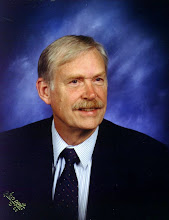There are some very vocal people who have a deep dislike for the Boy Scouts. Their concerns seem to be based on two points. One is that they say the Scouts are religious organization, and the other is that they say Scouts are biased against gays. (Another concern for a smaller number is that the Scouts are patriotic, which is a bad attitude.)
Having been a Boy Scout in the late 1940’s an early 1950’s, I can speak with some experience about that organization. Good scholarship, fair play, personal honor, achievement in Scouting activities, “doing a good deed daily,” and “being prepared” were some of the goals of Scouts. It is hard to argue with them. They have served me well.
The Boy Scouts that I remember were, on the whole, definitely not religious. Some boys were religious, while most were not. There was a religious path that Scouts could follow that was not mandatory. But the Scouts were not anti-religious, either. “Do my duty to God and my country,” was a motto or maybe, an oath, that was a non-specific generalization which covered most religious backgrounds. It was a reflection of the statements of our nation’s founding fathers and their documents. If parents in the 1940’s and 1950’s didn’t care for the “God” stuff, they probably saw value in the rest of the program. I am sure parents of gay kids saw the value.
While gay Scoutmasters are not acceptable to the Scout program for obvious reasons, there are now and have been in the past, gay Scouts. Probably more than anyone knows.
I was a tenderfoot Scout in 1944. One by one, I saw the older boys in my troop leave for military service. Some were killed in action, some survived. They were my heroes. My association with these young men helped me in more ways than I can ever list. As I grew in Scouting, I became a leader who replaced them (reluctantly, because my ideal was Daniel Boone, a loner in the forests of Kentucky).
One of the Scouts in my patrol was very likely gay. I can still remember the day Marvin’s dad showed up with his son, asking that we include the boy in our troop. Marvin’s dad was concerned because Marvin was not “manly” enough. Marvin was a nice kid, but drew unwanted attention to himself through his sometimes strange behavior. Some of the other boys made fun of him.
Did we throw Marvin out of the troop? No, we all tried, from the Scoutmaster down to the patrol leader, to provide a supportive growth experience for Marvin and we tried to set a good example for him to follow. My job as a young leader was to make sure everyone was treated fairly, and I tried to keep pressure off this boy. I think our acceptance of Marvin helped him accept himself. I do not think Marvin changed his nature at all. But he eventually learned to conduct himself appropriately.
Conduct was always a factor for good standing in the Scouts, and if a boy had no self control, he was asked to leave. But that seldom happened. A boy may have been criticized for swearing or for cheating during games, but that was just about the extent of his discipline. We thought that good conduct leads to good citizenship.
Scouts learn all kinds of things that can lead to a responsible, self-reliant adult life. Among these things is a healthy dose of good citizenship. You don’t find that topic taught in most places, these days.
Later, I was to find through research for a book I was writing, that as our military grew from some 125,000 officers and men to over 8,000,000 during WWII, a huge number of soldiers came from two sources: the CCC (Civilian Conservation Corps) and the Boy Scouts. These young people believed in their country and in what they were doing. The Scouts were an early asset, because they were already self-reliant and used to leadership, living outdoors and first aid techniques.
When I was in boot camp in the U.S. Navy, I found that my Scout training was especially useful. There were some would-be sailors who were terrified weepers who could not handle weapons. They appeared to have no Scout training. Later in life, when I did not go along with the crowd, someone would say to me in a sneering way, “You’re too much of a Boy Scout.” I learned to smile at them and say, “Thanks to Troop Nineteen.” I am proud of my Scout training and hardly a day goes by, some sixty years later, that I do not use some part of it.
Boy Scouts writing Politics conservatives
Friday, June 17, 2005
Subscribe to:
Post Comments (Atom)


No comments:
Post a Comment